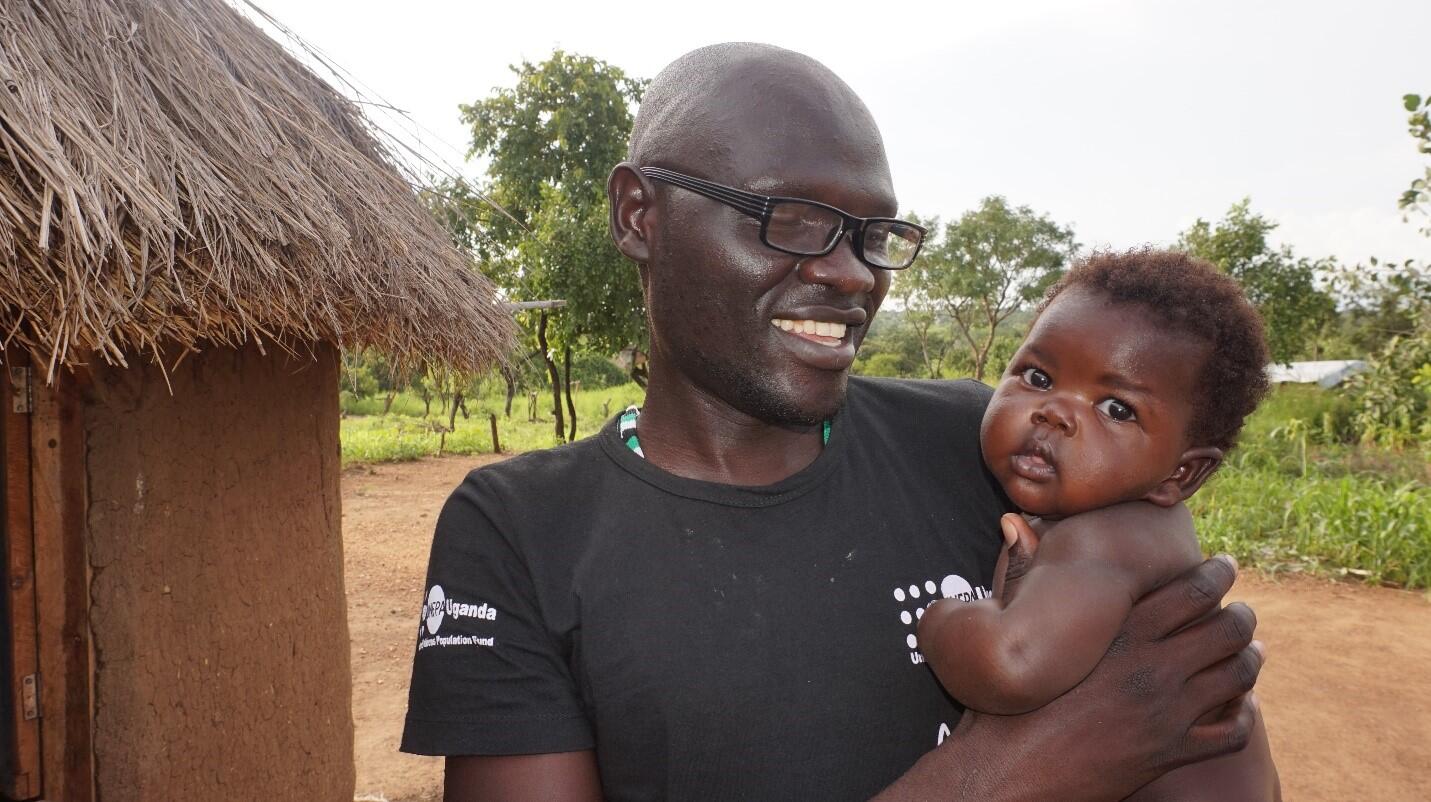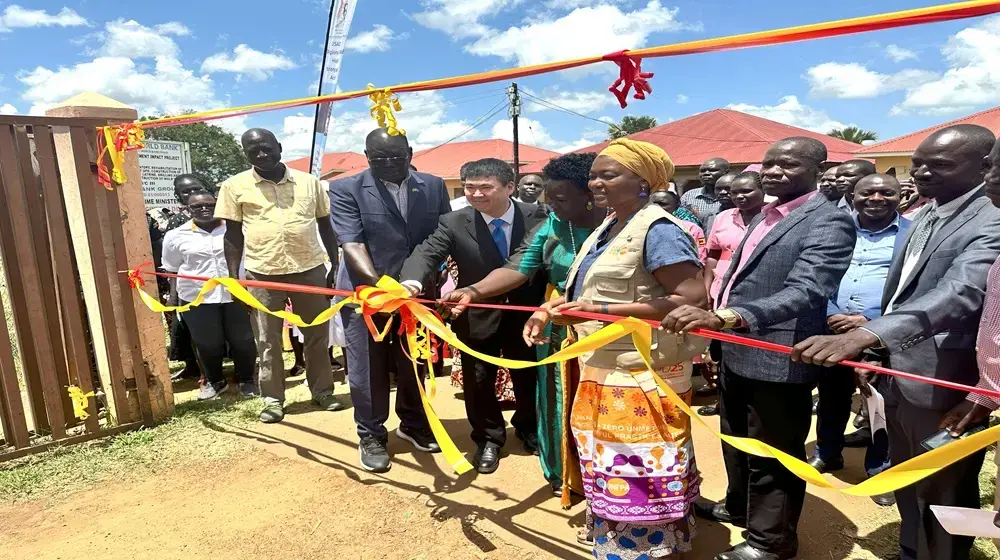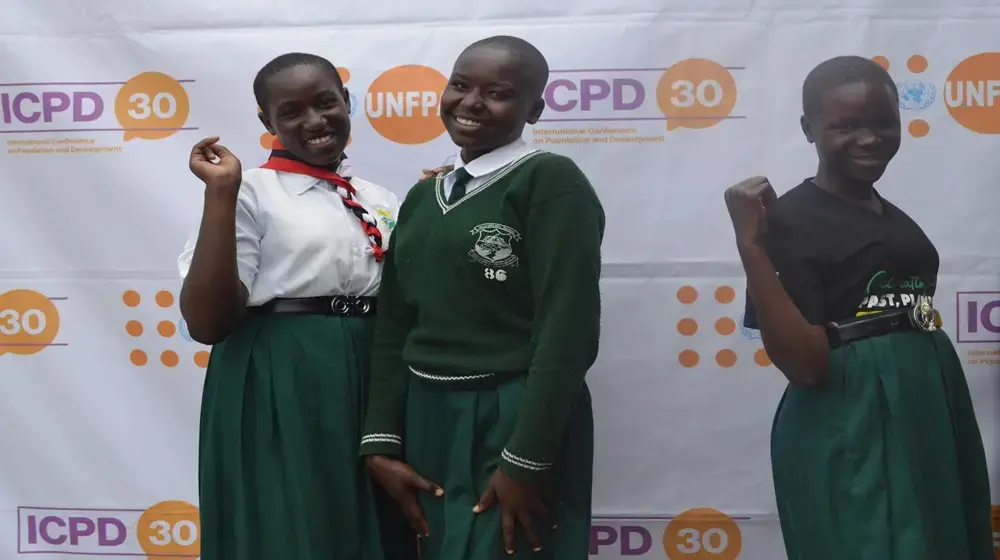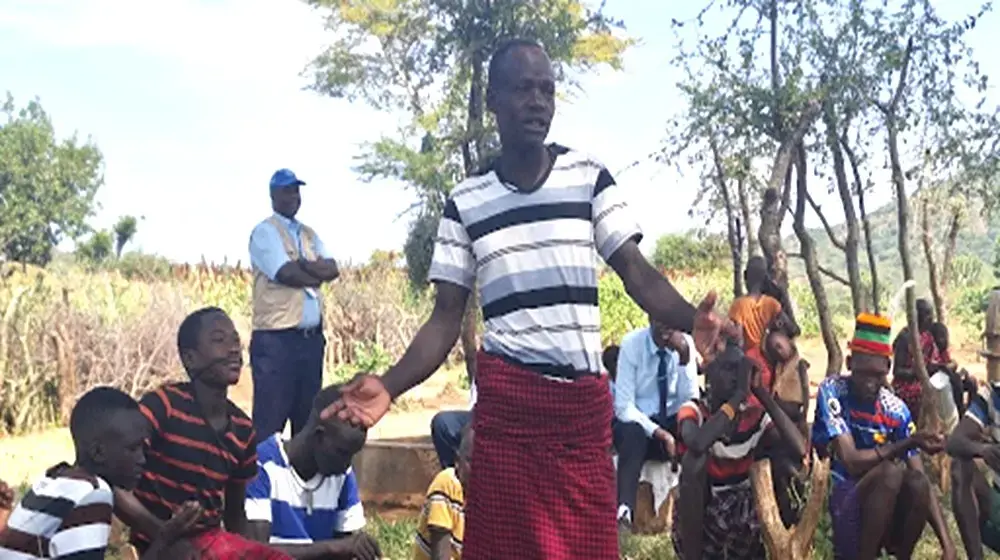Bidibidi Settlement, Uganda: Twenty -eight year old Moses Mila and his wife Josephine Angua are refugees from South Sudan living in Bidibidi refugee settlement, Yumbe district. The couple arrived in August 2016, with their three- year- old son and two months later, Josephine became pregnant with their second child.
“When I suspected out my wife was pregnant, I did not know what to do. I moved around the settlement looking for a nearby health facility so that we can test for pregnancy,” Mila says, recalling that he was also born in a refugee settlement in Northern Uganda in the 1990s.
“When I saw the signpost with a UNFPA logo and a health worker, I knew that I had found help,” says Mila.
Back in South Sudan, Mila was a secondary school teacher. With this background it was easy for him to join the Village Health Team (VHT) and also provide translation services at a temporary health facility to support emergency reproductive health response in Bidibidi settlement. The facility is run by International Rescue Committee (IRC) with funding from UNFPA.
In a training for VHTs in October 2016, Mila learnt more about the importance of antenatal, postnatal care, linking communities to facilities and giving health education to pregnant women.
Equipped with this knowledge, Mila was able to support his pregnant wife receive medical services. He accompanied her for antenatal visits to the facility, a 5 km journey through a hilly road. “I was always there for her, sharing household responsibility and ensuring to remind her of antenatal appointments,” Mila narrates.
“I escorted my wife for her first antenatal visit because I wanted to know our HIV status, so as to protect our baby and also learn more about caring for pregnant women”.
In June 2017, Josephine gave birth to a healthy baby boy through caesarian section at Yumbe district hospital where Comprehensive Emergency and Obstetric Care (CEmOC) services are provided to both refugees and nationals.
After delivery, Josephine received a dignity kit from UNFPA.
“I am happy that the items got her child started healthy and well.
“My husband was also by my side all the time I was in the hospital. He prepared my meals and still does the heavy work like fetching water from the borehole, so that my birth wound can heal properly,” she says.
Male involvement
Mila’s story is one example of how men can support reproductive and maternal health.
As a VHT in the settlement, Mila conducts pregnancy mapping, links pregnant women to the health facility and supports referrals. He also participates in maternal and child health nutrition programmes at the health facility, screening for malnutrition and ensures pregnant and lactation women receive food, mobilizes pregnant women in the villages and conducts health awareness sessions with them at least five times every month.
UNFPA actively supports and promotes the involvement of men in Reproductive Health - even in emergencies - as a key to achievement of safe birth goals. Men, as partners, fathers, husbands, health practioners and community leaders have a critical role to play in safeguarding the health of women during pregnancy.
Story by Patricia Nangiro





